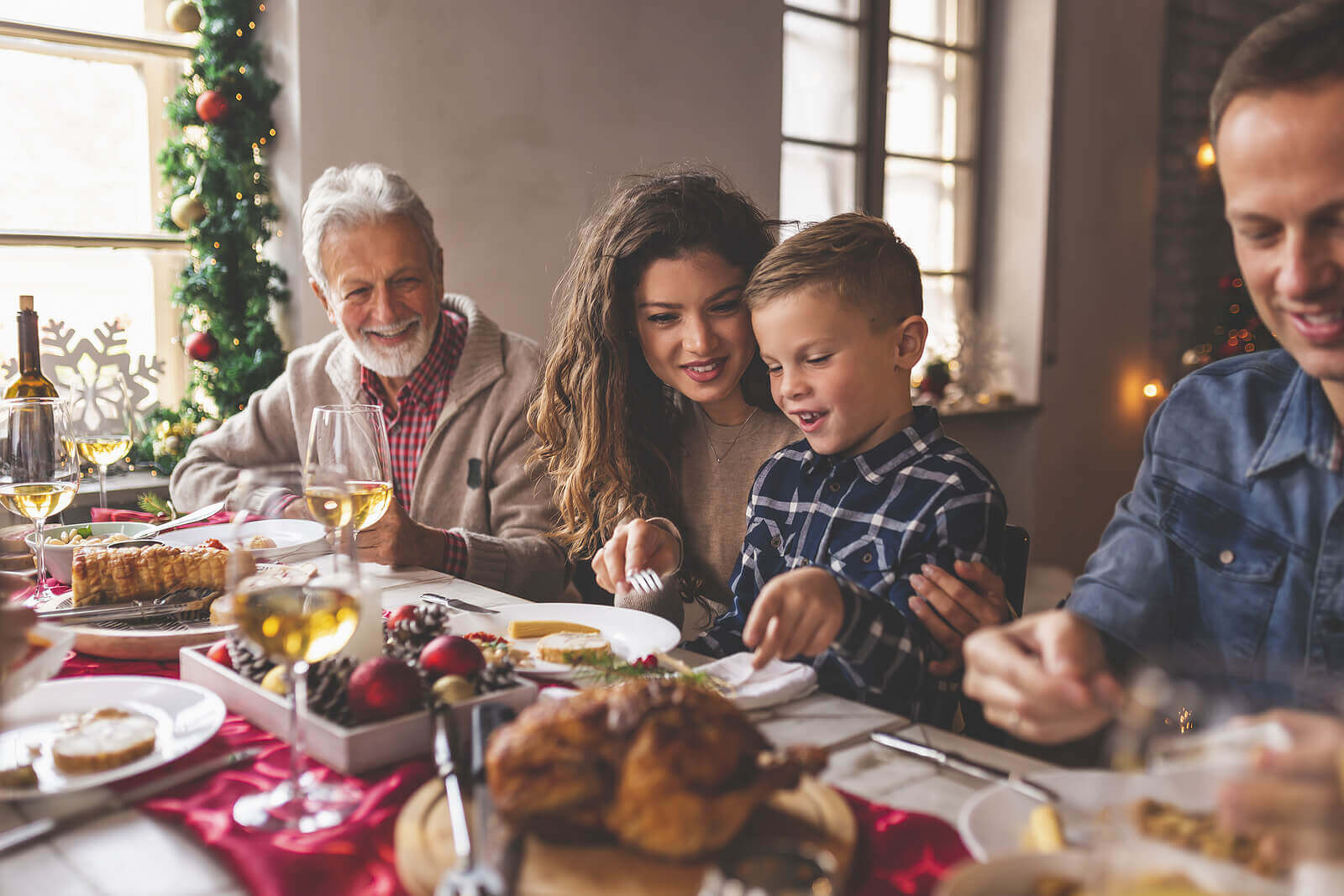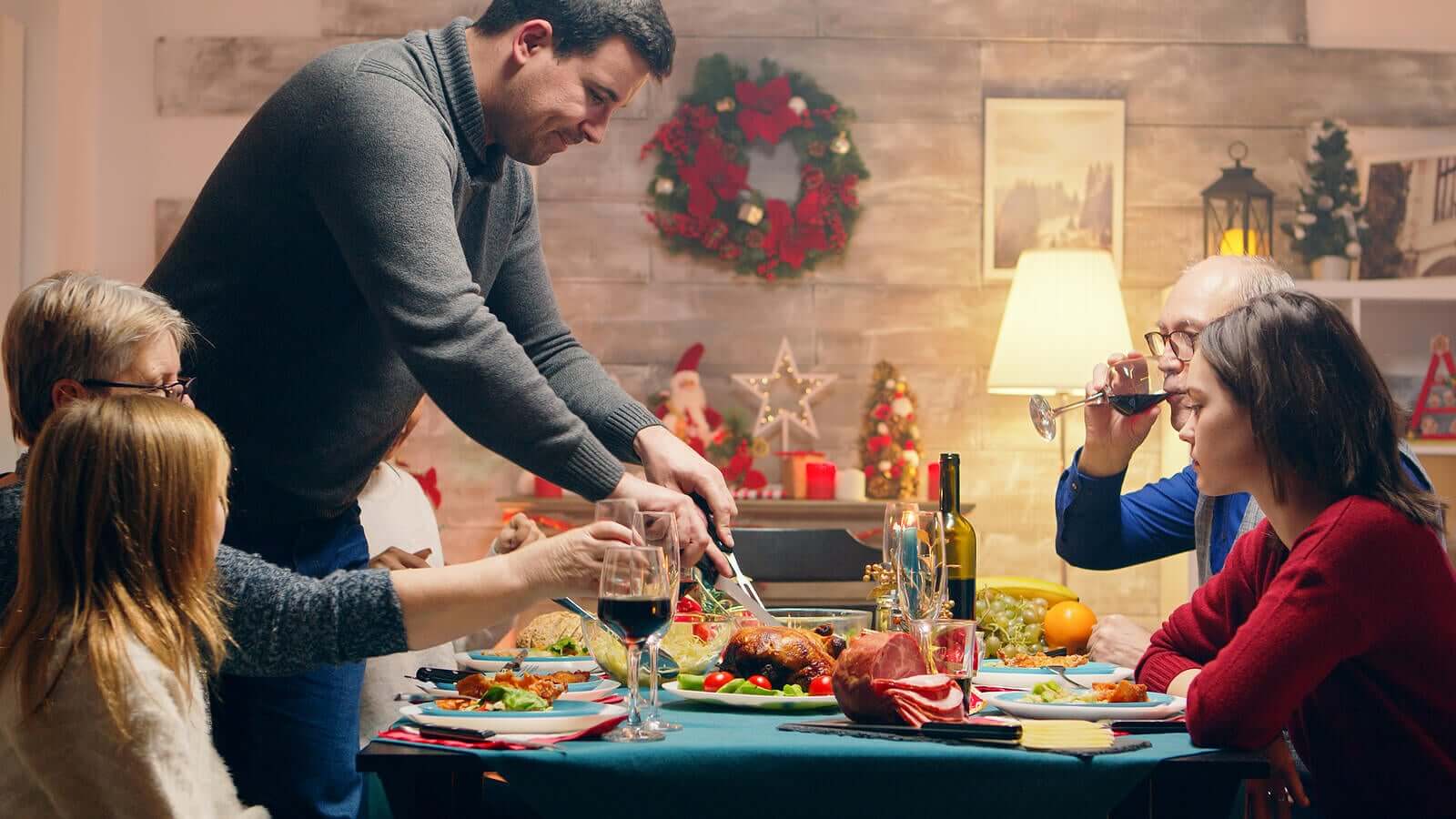How to Prevent Family Conflicts at Christmas

Family conflicts at Christmas are usually very frequent, as we have more contact with extended family, both with our own and with that of our partner. It’s in these gatherings where issues can come up that make sparks fly among the participants. Normally, when a couple comes together and forms their family, it’s common for them to get together with the family of one partner or the other for Christmas, but if there’s tension between certain relatives, the air can get pretty thick. And that’s why we want to tell you how to prevent family conflicts at Christmas.
Why are there family conflicts at Christmas?
What are the most frequent reasons for family conflicts at Christmas? Let’s take a look at some of them; they’re sure to sound familiar.

A lack of communication between some of the family members
Sometimes, certain relatives drag up past conflicts that they haven’t resolved and, in these Christmas gatherings, they can end up exploding. It’s not that Christmas is the problem and the generator of conflicts, but that these dates make past quarrels come to light.
Poor meal or event planning
Another reason that can cause problems between family members is the organization of Christmas lunches and dinners. What each party wants to eat, what gifts to give, where the gathering will take place, etc. This can be the trigger for some of the family conflicts around Christmas.
High expectations on these dates, one of the causes of family conflicts at Christmas
We can often get the idea that this is going to be a wonderful holiday and hold very high expectations. And if they’re not met, this can lead to disappointment and sadness.
In many families, there’s always someone whose presence we don’t feel particularly good about. No one’s obliged to get along with the whole family, but there must be respect and cordial treatment, despite the discrepancies between the members.
Tips to prevent family conflict at Christmas
Next, we’re going to see some tips that we can take into account to prevent conflicts among the family at Christmas, in addition to the respect and cordiality that we all must have with each other.
Plan, organize, and cooperate with each other
Although we’re guests, it’s important to be cooperative in the preparation of meals and activities. If we’re the hosts, we can make a list to have everything planned and prepared, so as not to be overwhelmed and stressed.
It’s also important that, if we need help, we ask other family members to give us a hand. If we carry all the pressure ourselves, our stress will increase and this can be a trigger for a family argument.
Look for the positives of these family gatherings
Many times, when these Christmas dates arrive when we’re going to meet with people who may not be to our liking or with whom we don’t get along, all that situation makes us not want to attend these gatherings. We can see these celebrations as a commitment or obligation that we must fulfill and we’re reluctant to do so.
But why not consider the idea that it could be a relaxed and interesting get-together? Sometimes our thoughts can make us imagine negative things that aren’t even founded. For this reason, we must encourage ourselves and think that there are relatives with whom we do get along and that, in the end, we’ll have a fun time as a family.
Don’t bring up topics of conversation that are controversial or sensitive
Not all people think the same and each one of us can have a different opinion regarding different issues. Although each person is free to express their opinions, at times of family gatherings, this can be a source of conflict if they have different positions.
For this reason, it’s better to leave these touchy subjects off the table and try to talk about more fun and trivial things. Some of the topics that can produce conflicts can be politics, sports, religion… Therefore, you should try to avoid them.

Take advantage of Christmas lunches and dinners to smooth things over
Although it’s true that within the same family, there are some you get along with better than others, if you arrange yourselves at the table with those people with whom you get along the best, this will avoid some discussions.
You can also take advantage of this time to sit with those family members with whom you have tension to smooth out rough edges. With empathy and affection, the family relationship can improve.
Don’t always try to be right
There are many people who need to always be right, but they must be clear that in an argument, there are no winners or losers. If you see that a conversation is taking on a heated tone, the best thing you can do is put yourself in the place of the other person and not impose your point of view.
Regarding family conflicts at Christmas…
As you’ve already seen, there can be several causes that produce family conflicts at Christmas, but we must take advantage of these moments to improve our relationships with the family. It’s a time of love and peace, so you have to try not to get into those discussions that, in the end, won’t lead to anything.
Here, we’ve given you some tips that you can try to carry out to prevent these arguments at Christmas gatherings. If you give it your all, they can be wonderful dinners and meals with the family that will remain in your memory forever.
All cited sources were thoroughly reviewed by our team to ensure their quality, reliability, currency, and validity. The bibliography of this article was considered reliable and of academic or scientific accuracy.
- Albuquerque, J. P. (2018). Familia, conflictos familiares y mediación. Editorial Reus.
- Fruto, R. V. (2010). La resolución de conflictos familiares. Justicia Juris, 6(13), 40-48.
